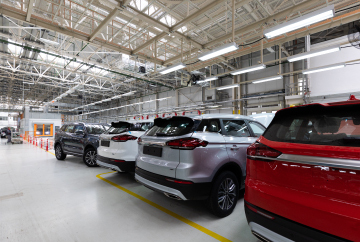Enterprise Automation: The answer to orchestrating mass personalization
Shop floor automation is only a tiny piece of the mass personalization puzzle – albeit an essential one. But delivering mass customization while delighting customers is another ball game altogether – and one that cannot be played without enterprise automation.
Key tenets for profitable mass personalization
Here are a few critical elements of successful mass personalization orchestration in manufacturing:
- A real-time information loop: Every order-to-delivery process should run on real-time data. This calls for automated cross-system data upload and seamless integrations.
- Automated dynamic pricing: The cost of personalized products varies significantly. To maintain profit margins, manufacturers must employ pricing automation using intelligent algorithms.
- Tight SCM-ERP integration: Custom orders must be effectively translated into production and sourcing requirements, which requires automation of swivel-chair data entry tasks.
- Automated procurement: To ensure personalized products don't take too long to produce and deliver, manufacturers cannot rely on rigid automation algorithms to drive procurement. AI-based procurement automation is, therefore, essential to maintaining reasonable delivery times.
Enterprise automation for mass personalization: Prioritize these strategic business areas
Tightly integrate e-commerce systems with backend systems
Ensure that product configurations ordered by the customers are automatically translated into actions that must be taken at the inventory and production levels. This requires a backend-as-a-service solution that offers API management capabilities.
Integrate Dynamic Manufacturing Execution Systems with the ERP and IIoT fabric
Modern MES platforms are capable of orchestrating production activities in real-time. Enterprise automation enables them to adapt manufacturing processes on-the-fly, which is key to accommodating personalized orders without compromising production efficiency. By integrating with the ERP and Industrial IoT fabric, dynamic MES systems ensure the accurate output of personalized products throughout the manufacturing lifecycle.
Build end-to-end visibility into order-to-cash process
Tracking the cost to serve each item and how long it takes to deliver an item to the consumer will be crucial. Manufacturers can ensure consistent profitability in mass personalization by cataloging the cost to serve. To implement this, businesses need data integration solutions that support flexible messaging standards and offer visual mapping, monitoring, and information retrieval capabilities.
Leverage data to drive personalization and spot opportunities
Enterprise automation integrated with analytics capabilities can help manufacturers analyze customer preferences, market trends, and historical data. This can be leveraged to spot customization opportunities. Moreover, these insights can also be applied to recommend personalizations for individual customers, thus offering a tailored experience for each buyer.
Synchronize product design and development with manufacturing processes
This enables engineers to design customizable products that can be produced by exploiting existing shop floor automation capabilities. Script-based automations are unlikely to work here, as upstream and downstream changes tend to break them, incurring significant script maintenance overheads. An ERP offering with inbuilt PLM features and native automation and integration capabilities will be essential at this step.
Integrate design and engineering processes with enterprise automation
Advanced Computer-Aided Design (CAD) software and automation algorithms enable engineers to rapidly edit product designs based on specifications provided by the customer. Automating the handoffs and design-to-engineering workflows with enterprise automation accelerates iterations, which reduces the time-to-market for personalized products.
Automate production planning and procurement
Personalization can introduce significant complexity into production planning and procurement processes. Automating the process of capturing order queues and translating them into production schedules can abstract much of the complexity of production planning. Similarly, building automation in the ERP can help run procurement processes for custom components on autopilot, with a human in the loop.
Moreover, enterprise automation applications can integrate with a manufacturer’s supply chain partners. Cloud-based collaboration with upstream partners can help accelerate the development of custom parts, thus accelerating the fulfillment of personalized products.
Exploit enterprise automation to improve quality control
Integrating machine vision-based automation across the shop floor can help spot defects in customized items early in the production process. Enterprise automation applications enable manufacturers to spot deviations from the customer's specifications, and AI algorithms drive continuous improvements across quality processes.
Mass customization with Infor Enterprise Automation
More crucial than activating the above use cases is addressing how enterprise automation is implemented in the organization. Legacy automation solutions have resulted in clunky deployments that break more often than they solve. This diminishes their ROI and upsets the profit margins on customized products.
However, enterprise automation applications are effectively driving a paradigm shift in product personalization in the manufacturing industry. Manufacturers can now efficiently deliver personalized products at scale by streamlining design processes, integrating supply chain partners, exploiting dynamic MES orchestration, enhancing quality control, and harnessing data-driven insights.



